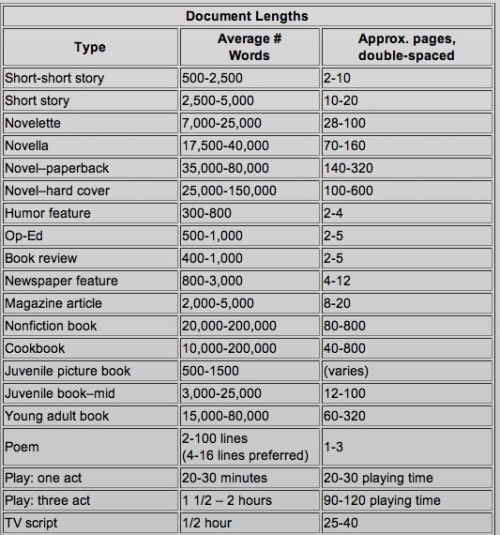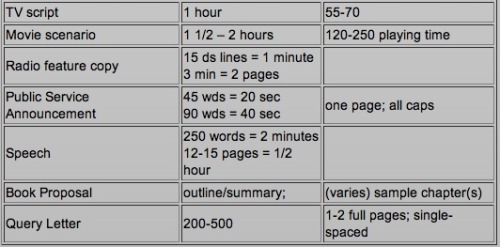“Isn’t It Strange That We Talk Least About The Things We Think About Most?”
“Isn’t it strange that we talk least about the things we think about most?”
— Charles Lindbergh
More Posts from Justanothergirlsblog and Others

for the draft thing: when i start writing novels i always have a lot of beginning, a fair amount of backstory, a solid ending, and maybe one or two key events in between, but nothing in the middle. i'm never sure how to approach this and it usually kills a lot of my projects :/ not sure if this is a question you can answer easily but if there's any tips i'd love to hear it!
Planning the middle...
I’ve gathered a couple of resources that I believe may help you with this.
Coming Up With Scene Ideas
How To Engage The Reader
Pacing Appropriately
Balancing Detail & Development
Writing The Middle of Your Story
Powering Through The Zero-Draft Phase
Maintaining Writing Momentum
How To Prevent Getting Stuck
Writing Your Way Through The Plot Fog
Resources For Plot Development
Guide To Plot Development
How To Foreshadow
Novel Planning 101
Tackling Subplots
Things A Reader Needs From A Story
Planning A Scene In A Story
How To Fit Character Development Into Your Story
And some prompts in case you have trouble getting the creative juices flowing while you’re brainstorming...
Romantic Prompts
Angst Prompts
Dramatic Prompts
Suspenseful Prompts
Sad Prompts
20 Sentence Story Prompt
31 Days of Character Development : May 2018 Writing Challenge
31 Days of Plot Development : January 2019 Writing Challenge
–
Masterlist | WIP Blog
If you enjoy my blog and wish for it to continue being updated frequently and for me to continue putting my energy toward answering your questions, please consider Buying Me A Coffee, or pledging your support on Patreon, where I offer early access and exclusive benefits for only $5/month.
“Before you ask why someone hates you, ask yourself why you even care.”
— Tiffany Alvord
“Missing you comes in waves and tonight I am drowning.”
— Unknown

hi! this is hard to explain but i’m trying to write my first proper story and i’m suddenly overthinking whether i’m writing in past or present tense. do you have any advice for that?
Hi and thanks for the ask!
As someone who tends to overthink things on a daily basis, I can imagine how troubled you might be about this. So I’ll try to make your decision at least a little bit easier.
In my opinion, choosing the tense you use is very much dependent on your personal preference. Although present tense seems to be more popular with today’s writers, personally, I prefer past tense. Apart from the question about popularity, though, there are different advantages and disadvantages for both choices. I’ll highlight the advantages and disadvantages for present tense only, since the opposite is obvious for the past tense.
***
Advantages: Present tense has a more immediate feeling to it. Writing in present tense gives the reader the ability to experience the story in time with your characters. The moment a character changes, we experience that change in them as well. It also immerses the reader in the character’s emotions for longer than the past tense does. Moreover, handling tenses in general is a lot easier if you write in present tense rather than past tense.
Disadvantages: It’s a lot harder to manipulate the time inside a story. With present tense you usually only use past tense for the few things that actually happened in the past. That also makes it harder to create complex characters because phrases like “has always been” and the like can’t be used, since they would greatly disrupt the present tense’s main use. What’s more, the present tense author is experiencing the story at the same pace the characters do, so it is almost impossible to create a feeling of suspense. Even though you as the author, of course, know what will happen, phrases like “hadn’t known yet” and similar lines don’t fit well into a present tense story. Another possible trap the present tense sets, is misleading authors to write about mundane and trivial events that serve no plot function but would, of course, happen in a naturalistic sequence of actions.
***
I hope this somehow answers your question and makes it easier for you to decide whether to write in present tense or past tense.

New Editing Features in Writing Analytics
A few days ago, I posted a preview of a feature I was working on. I’m happy to announce that highlights are now live and ready to use 🎉.

Just choose which words or phrases you’d like to be highlighted, and Writing Analytics will do that as you type. This has a number of use cases, particularly when you’re editing something and want to target specific issues in your draft.
Stuff like weeding out adverbs, cleaning out unnecessary words, passive voice etc. You can also use these to highlight the names of your characters and their pronouns to visualise better how much space they’re getting in the narrative.
You can do anything you want — that’s the best part!
How it Works
1. Click on Highlights in the main menu.

2. Add some highlights. You can also click on them to choose a different colour.

That’s it. You can close the widget and go back to writing.
One cool thing is that star works as a wildcard. It will match any word or part of word. So if you want to highlight problematic adverbs use *ly like so:

Colour-coding and visualising what you’re looking for in the text makes revisions so much easier —instead of having to read the whole thing over and over again, you can focus on specific areas and issues.
The highlights show up as you type so you can also use this to break down bad writing habits. Just set up highlights for words or phrases that you’d like to stop using, and you’ll be alerted when it happens.
It took me a while to build this, and I’m very excited to finally see it in the wild — one of my favourite features for sure.
Wanna give it a go? Sign up for a free, no-commitment 14-day trial.


I wanted to double check that “The Cherry on Top” was a short novel or novella and I found this on uphillwriting.org. I think it’s very informative and hopefully you guys will find it useful!
“Believe with your eyes, not with your ears.”
— Unknown
-
 mllxo reblogged this · 1 year ago
mllxo reblogged this · 1 year ago -
 mllxo liked this · 1 year ago
mllxo liked this · 1 year ago -
 wayhaughttacos liked this · 2 years ago
wayhaughttacos liked this · 2 years ago -
 itsfaz reblogged this · 2 years ago
itsfaz reblogged this · 2 years ago -
 itsfaz liked this · 2 years ago
itsfaz liked this · 2 years ago -
 bvj liked this · 2 years ago
bvj liked this · 2 years ago -
 typicalmoroccan reblogged this · 2 years ago
typicalmoroccan reblogged this · 2 years ago -
 xras99 reblogged this · 2 years ago
xras99 reblogged this · 2 years ago -
 dee-7 reblogged this · 2 years ago
dee-7 reblogged this · 2 years ago -
 heabdullah7 reblogged this · 2 years ago
heabdullah7 reblogged this · 2 years ago -
 d11ee reblogged this · 2 years ago
d11ee reblogged this · 2 years ago -
 d11ee liked this · 2 years ago
d11ee liked this · 2 years ago -
 pinkdinosauress liked this · 2 years ago
pinkdinosauress liked this · 2 years ago -
 la-119 liked this · 3 years ago
la-119 liked this · 3 years ago -
 anonimabalbaita reblogged this · 3 years ago
anonimabalbaita reblogged this · 3 years ago -
 delightedobserverintraining liked this · 3 years ago
delightedobserverintraining liked this · 3 years ago -
 joshua-11s-blog liked this · 3 years ago
joshua-11s-blog liked this · 3 years ago -
 justlovingisall liked this · 3 years ago
justlovingisall liked this · 3 years ago -
 neeeshh reblogged this · 3 years ago
neeeshh reblogged this · 3 years ago -
 leatherandcherryblossoms reblogged this · 3 years ago
leatherandcherryblossoms reblogged this · 3 years ago -
 acourtofracingandfangirling reblogged this · 3 years ago
acourtofracingandfangirling reblogged this · 3 years ago -
 demara liked this · 3 years ago
demara liked this · 3 years ago -
 herzgesteuert reblogged this · 3 years ago
herzgesteuert reblogged this · 3 years ago -
 ukhxn reblogged this · 3 years ago
ukhxn reblogged this · 3 years ago -
 deviousbrat reblogged this · 3 years ago
deviousbrat reblogged this · 3 years ago -
 whoknowswhatiwillbecome reblogged this · 3 years ago
whoknowswhatiwillbecome reblogged this · 3 years ago -
 elegancefollowedbyclass reblogged this · 3 years ago
elegancefollowedbyclass reblogged this · 3 years ago

I'm just a weird girl who likes to read about history, mythology and feminism.
207 posts